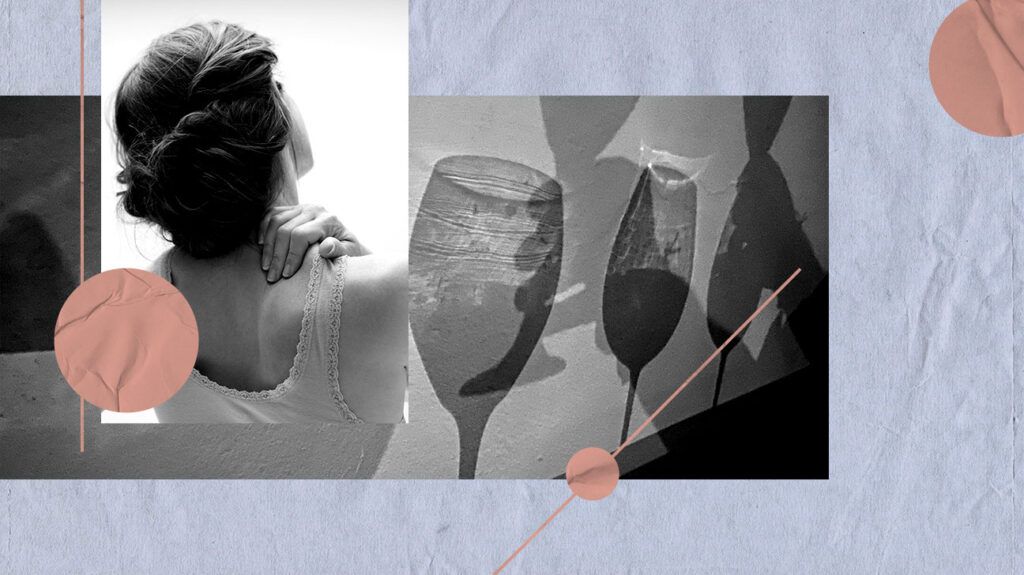Alcohol consumption may cause joint pain in some people. There are various reasons for this, including triggering conditions such as gout and a buildup of uric acid in the blood.
Alcohol consumption — particularly excessive consumption — is associated with various health issues. For certain people, it may lead to joint pain or discomfort due to some of the immediate effects it can have on the body.
This article explores alcohol’s relationship to joint pain, arthritis, and inflammation.

Consuming alcohol may cause joints to ache. This may be particularly true for people living with conditions such as gout or osteoarthritis.
Alcohol can lead to a buildup of uric acid in the blood. High uric acid levels
Alcohol can also act as a diuretic and lead to dehydration. Water helps with both synovial fluid creation and cartilage support.
Synovial fluid is a thin layer of fluid that surrounds the joints. It helps cushion the joints, deliver nutrients to them, and
Alcohol may promote and suppress inflammation in the body through different mechanisms.
Immune system functioning
Alcohol may suppress a person’s immune system function, particularly the innate immune system that helps protect against infection.
According to a
Gut bacteria imbalance
Some
Certain bacteria in the gut microbiota
Uric acid levels
Alcohol can increase uric acid levels in the blood, though it may not be consistent across all alcohol types, according to a
Researchers found that people had higher uric acid levels when consuming beer compared with some other types of alcohol. This suggests that alcohol type — along with ethanol levels — may contribute to uric acid increase.
Increased uric acid levels can put a person at a
Sleep disturbances
Alcohol consumption can lead to disturbed sleep or poor sleep quality.
Some evidence links poor sleep quality to inflammation. For example, in a
Inflammation can lead to aches and pains in the joints when those areas are affected.
The exact connection between alcohol consumption and certain types of arthritis is somewhat conflicting. Some studies have shown a potential protective effect, where drinking alcohol helps reduce the risk of osteoarthritis. Others have shown that it increases risk.
A
This means that the researchers in the study incorrectly associated alcohol as a protective factor when another factor may have existed in the study that explained the protective effect.
As a result of their analysis, the researchers concluded that not enough evidence exists connecting alcohol consumption to arthritis prevention. However, the meta-analysis concluded that evidence appears to dispel the notions of alcohol as a protective measure against OA.
A study from 2022 found evidence to suggest that excessive alcohol consumption may increase the risk of osteoarthritis in the knee. Additional, larger studies are also needed to better assess this potential risk factor.
However, another study from 2022 of an older Korean population found alcohol consumption may have a protective effect against osteoarthritis. The researchers noted that beer had a potentially protective effect against arthritis.
Can alcohol help arthritis symptoms?
Organizations, such as the Arthritis Foundation, suggest that drinking moderate amounts of alcohol (between 5 and 10 grams daily)
Most advice is to limit or avoid drinking alcohol. It is best to discuss factors such as alcohol consumption with a healthcare professional.
A person should discuss their drinking habits with a healthcare professional, particularly if they are living with arthritis. A doctor can help advise on what medications an individual can take and what interactions may occur.
Alcohol can cause issues with common pain medications. For those who take acetaminophen, alcohol consumption can increase the risk of liver damage. Nonsteroidal anti-inflammatory drugs (NSAIDs), such as ibuprofen, have a higher risk of causing issues in the stomach, such as ulcers.
A person may find that drinking water helps rehydrate their body. This may help reduce aches in the joint.
When consuming alcohol, a person should consider drinking a smaller amount. This may help prevent pain in the joints and other symptoms associated with alcohol consumption.
The following sections provide answers to frequently asked questions about alcohol and its effects on the body.
What are the first signs of kidney damage from alcohol?
Some
- swelling of the feet
- nausea and vomiting
- decrease in mental sharpness
- fatigue
- low urine output
These symptoms can indicate that the kidneys are not working properly. It could indicate kidney disease due to alcohol.
What does alcoholic myopathy feel like?
Acute alcoholic myopathy
Alcohol consumption can lead to joint pain, particularly in those with gout or at risk of gout.
A person should consider speaking with a healthcare professional about their alcohol consumption, particularly if they are regularly taking medications for an underlying condition.
A person may be able to prevent inflammation that may lead to joint pain from alcohol by limiting how much they consume and drinking plenty of water.
